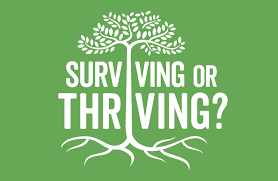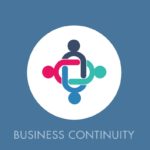
Finally, we can see the light – André Bozon, Lead Trainer with SYLO | Beyond HR.
So, the plans are coming to return to work. Finally, we are all seeing some light at the end of the tunnel, but let’s not get too excited just yet. Yes, there is some control over the virus but there is much we still don’t know, and it is going to have to be a careful, considered return to work, if we are going to return sustainably to a normal life.
It’s the human aspects we forget
Many will talk about the physical and business aspects about returning to work, including answering the following questions:
- Restarting the business gradually
- Managing your sites to ensure social distancing is adhered to
- Managing business travel
- Managing customer expectations
So, rather than focus on these points, I thought we should consider one of the other aspects that is often forgotten; the human aspect.
Treat everyone as we would want to be treated
The problem is where to start and, indeed, how deep to look. Well, we can’t cover everything but here are some thoughts to at least consider or be aware of. It starts with grasping a key point many of us managing forget… we are all different. If you followed the advice of one of my earlier blogs , then you will have kept in regular contact with your direct reports and possibly theirs. Now, I don’t know about you, but I have been truly struck by how different reactions to the lockdown have been.
I think I’ve heard all the different perspectives now, although I am sure someone will prove me wrong. From those I have talked to, I have heard:
Working Employees
“This is great, I am / the team is so much more productive”
“How come XX gets furloughed but I don’t?”
“I feel so alone, it’s impossible to focus”
“My flat is too small for all of us to work from.”
“I need to look after the kids, so how can I work at the same time?”
Furloughed Employees
“This is amazing, being paid to sit back… I am getting so much done around the home”
“Now they have furloughed me, are they going to want me back?”
So, what do we need to consider as we move back to work?
Its starts with communication
I know that some people think I push this subject too much but, to be honest, I probably don’t push it hard enough. In order to get your team up and running as effectively as possible, you need to understand their thought process, the pressures on them and their needs. The only way to know these things is to have been in genuine conversation with them. Just assuming that sending them a return to work email will restart the business is a poor example and likely to result in failure.
Many of us are social animals
Yes, we have tools today that enable to talk face to face over the net, but is it really the same? If you take the extremes, there are some grandparents who have been separated from their children and grandchildren, who would love to just be with them again and get a hug. OK, it is not like that with work friends, necessarily, but many still yearn for that opportunity to be with people and have a chat. Returning to work initially may result in a decrease in productivity, therefore, as people get used to being with each other again. If you want an example, think about how people perform when they first return from a holiday? You can’t expect your team to be maximum productivity from the start, so allow them a gentle start and then gradually ramp up their activities.
Lives exist outside of work as well as inside
A different pressure will come from outside work. We are talking about having a staggered return to work, which also means a staggered return to school and, even, social care. So, some of your team, at least, maybe impacted by the need to continue to look after dependents. This is not their fault and they may have little they can do to get around these obligations, so we need to consider how we can help them return to work.
Will our skills be rusty?

Something many parents will also associate with; if they have had to take longer breaks to look after their children over the summer holidays. Similarly, women that have taken maternity leave. I have seen amazingly able people go on long breaks and then return not at the top of their game. They may have forgotten some processes or, even, just lost confidence in their own decision making. Similarly, if you were most of the way through an activity just as you were put on furlough, then you may need to review where you were and what you had done again, before moving the project forwards.
How nervous will you be on coming into contact with others?
Specific to the situation with COVID-19, you may find yourself nervous, even anxious, about being in surroundings with others. When I talk to friends, many have spoken of how nervous they get on their exercise walks when they come across others. If you know you have a particularly nervous team member, consider how you can make them more comfortable before returning to the office, rather than trying to treat the symptoms when they return.
A return to a normal routine?
So, what sort of routine have people had during the lockdown? Personally, I have kept focused on getting up and doing exercise during the times I would normally be in a car – which is amazingly disciplined of me! However, not all of us are the same. Continuously, I am hearing about people getting up later. Its lovely, while you can, but will you struggle to get up when you return to work? We can’t expect the team to be working at maximum productivity when first back, but we should not have to regularly accept tardiness. The solution? Well, it comes down to setting expectations before they return and then leading by example. However, this also leads to another, very important question…
Do we need to return to the office or, indeed, travel in the same way?
As discussed in my last blog, the lockdown has forced us to review our ways of working, engaging many of us in communication through newer technologies. It has created a change that, for some, has proved beneficial. Recently, we heard of a customer centre that had improved its performance during the lockdown period. Of course, it means letting go of the need to see what people are doing, it forces us to trust our teams more and “micro-manage” less. Offices are still required, as is some business travel but now is the time to review what we have achieved during the lockdown and consider how we can use these learnings to improve business performance in the future. Be sure to take this opportunity.
Be clear about objectives
However, you manage your return to work, it is vital that you manage the expectations of your team. They need clear, unambiguous guidelines as to what is expected with them so that you can measure and manage their performance. The clearer you are from the onset, the smoother the transition will be.
It’s about wellbeing
What we are really talking about here is the wellbeing of yourself and your team. Many see wellbeing as a nice to have subject, where we talk about soft fluffy things like meditation. It isn’t. It covers everything from keeping your employees safe to keep them productive, and is, therefore, something we take very seriously at SYLO | Beyond HR. and one of the biggest concerns being raised by our clients.
Then there is one last thing to consider…
Measure and lead the best behaviours
It is all very well setting standards, but if we don’t abide by them ourselves then how can we expect the team to do so. I always go back to a military rule my Dad taught me “never give an order you wouldn’t be prepared to follow yourself”. As managers, we lead by example. Therefore, ensure that you exhibit the behaviours you are looking for. At the same time, monitor the team and provide consistent, constructive feedback to enable the team to once more deliver at the very best levels.
Constructive feedback is an interesting subject that seems to be misunderstood by many. It comes not just from words but in the way that feedback is delivered and that is the subject of my next blog. In the meantime, I hope you are enjoying these blogs and if you have any feedback or questions, then please do let me know.
For now, stay safe and keep in contact with your team.
For more information regarding any of the points above please contact us here and one of our highly experienced Associates will be happy to talk to you.
SYLO | Beyond HR.
Supporting Your People and Your Business.

